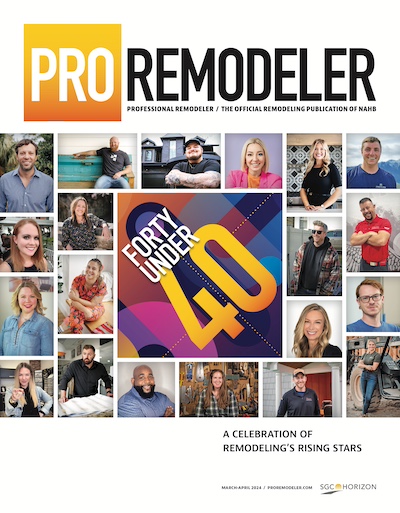|
|
|
Doug Dwyer |
I first wrote about the importance of effective communication in my July 2005 column Building Team Communication. In that column, I said that to achieve excellence within our companies' cultures, leaders must work hard at keeping healthy relationships. Our communication skills must be a strength, not a weakness. It takes time, energy and effort, but it pays big returns by producing better results and deeply enriched relationships. As leaders we must be proactive in building a positive growth culture, being observant and having challenging conversations when needed.
What is the best way to have a challenging conversation? I've found it helpful to have a plan and know that it's rare that these discussions are ever easy.
Over the years, I've had to face many challenging situations, often times while at a conference or business meeting. One situation occurred while I was conducting a large training conference. It came to my attention that one of our associates was not living up to the conduct of our Code of Values. He was using inappropriate language, exhibiting negative body language and was withdrawn at times. After the first day of the conference, I knew the situation needed to be addressed because it was affecting other attendees.
Because of this associate's relationship with the company, I was the most appropriate person to contend with the situation. Yet, at that moment, I did not want to deal with it. At times, this person had a very outspoken personality and could have an intimidating presence. And, like most of you, I had more than enough on my plate to fill my hectic schedule. To address this issue added a complexity to the three-day event.
Before our conversation, I spent about 20 minutes preparing my thoughts. I first noted what I didn't want to happen during the dialogue. The purpose was to share this with him so he would feel more comfortable about the intended outcome of the meeting (rather than forming his own conclusions), and would therefore be more engaged in the conversation that was about to occur. I then wrote down what I wanted to happen.
Throughout the majority of the meeting, neither of us was 100 percent comfortable and certain times were more challenging than others.
The shortened version of the conversation went something like this: "You know, Joe, I wanted to meet with you about a very important topic. What I don't want to happen is for you to leave this meeting feeling like I don't want you to be a part of the company, that I don't have respect for you, or that I want our relationship to end. What I do want to happen is for you to continue to be a great member of the team, in a way that meets our company standards of conduct and professionalism."
Then, I addressed the specific behavior that was inappropriate for a member of the team. Fortunately, he took ownership of his behavior — he even noted that he had been trying to work on some of the issues I addressed. He fully understood what we were trying to accomplish as a company and committed to meet the standards as discussed. The added bonus was that we were able to reconnect our long-term relationship in a significant and meaningful way. The great news is this gentleman is still an associate and is excelling greatly since this meeting.
So, how can this story relate to you? Simply stated, if you are faced with a difficult conversation, don't ignore it. It would have been easier in that moment to just avoid the conversation altogether, with the hope that he would just change on his own. But, in this case, it is likely he would have never known that his behavior was affecting others nor understood the company's commitment to operating at the standards we discussed.
As a business owner or manager, I am sure you have likely experienced many challenging encounters with associates, clients and others. While working to strengthen my communication, I have found two great books, Crucial Confrontations and Crucial Conversations, to be great resources in finding a positive outcome to a difficult situation. I highly recommend you read these and share them with your team.
As I mentioned in the July 2005 column, don't forget to call a business friend or consultant for advice when you're faced with a difficult situation. Don't let the problem continue to slide; it can build up and become an explosive situation. As a business consultant once said to me, "It is easier to kill the monster while it is little."
| Author Information |
| Doug Dwyer is president and chief stewarding officer of DreamMaker Bath & Kitchen by Worldwide, one of the nation's largest remodeling franchises. He can be reached at doug.dwyer@dwyergroup.com. |
Communication skills must be a strength, not a weakness



